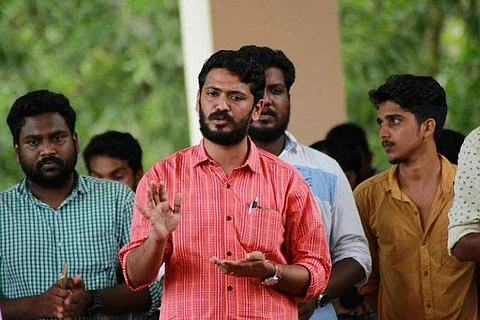

On June 4, filmmaker Aashiq Abu bought five new television sets. Now, none of these were for Aashiq's personal use, instead, he donated all of them to the SFI and the DYFI, as part of their TV Challenge. Since the time the Kerala government decided to reopen all its schools online, the two organisations, the student and youth wings of the ruling CPM have been asking people around the state to donate television sets, mobiles and other gadgets, to be distributed to school students who do not have access to these.
In a first, the Kerala government decided to conduct online lessons for all the government school students in the state through its Kerala Infrastructure Technology for Education programme. The lessons were also broadcast on the government's Victers channel. However, despite wide appreciation, the programme was criticised as the state still has a digital divide to bridge. For instance, a survey by the Samagra Shiksha Abhiyan states that 2.61 Lakh students in Kerala have no access to technology or television sets.
"Bridging the digital divide is what the TV challenge aims at," says V P Sanu, National President, SFI. "People who have extra gadgets can give them to the SFI and it will then be distributed to the needy students through local bodies," he says. The challenge began on June 1.
Recently, the SFI protested the decision of the University of Delhi to conduct classes online. Activists had created a twitter storm and even conducted a demonstration, maintaining physical distancing. Sanu tells us that SFI, in principle is still against online education and the digital divide. "We are against the digital divide in all states. However, here, we are doing our bit to bridge the divide. Instead of imposing classes strictly online, the Kerala government also decided to broadcast the same lessons through TV, aiming at a wider reach." says Sanu. "In 2001, only 36 per cent of Kerala households had TVs. This spiked to 78 per cent in 2011. The numbers would have obviously gone up in 2020," he adds.
The government of Kerala had also said that the classes will be run for two weeks on a trial basis. Commenting on this, Sanu says, "This allows us time to identify the magnitude of the problem. We hope to distribute as many gadgets as possible in a short period. We are also aiming to provide television sets to be placed in common spaces in Adivasi and tribal colonies and help people with connectivity," he adds.
